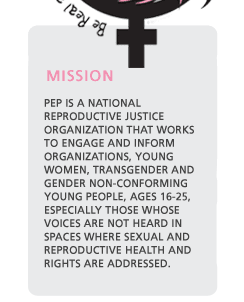The word �worker� is not gender-neutral. Specifically within the immigration debate, many immigrant rights activists, and opponents, assume a specific stereotype about undocumented workers, namely that they are male. Anti-immigration sentiment has been reborn, largely due to the attitudes of conservatives in the United States.
In an effort to create a nationalist us against them attitude against immigrants, with conservatives as the us and immigrants the them, the anti-immigration movement has contributed to an increasing dissemination of negative stereotypes about immigrants in the US. Part of me is really surprised an �immigration debate� exists at all; anti-immigrant proponents resemble snarling beasts the way that they describe illegal border-crossers as the cause of declining wages in the U.S. (Are they really talking about human beings?!)
However, the scariest thing about the controversy is how bits of these dehumanizing sentiments weasel their way into the consciousness of conscientious people. Even those who realize that that the elite employers and CEOS are the cause of declining wages, and that immigrants are hard-working individuals, that these are people with dignity, are sometimes sucked into the rhetoric. These slips take the form of an accidental use of the words �illegal immigrant� or �alien�. I am guilty of this too, even though I resolutely believe that no one is illegal, no one is criminal, simply because of their location.
I began seriously thinking about language and the �immigration debate� this summer while interning at the organization Class Action and doing research on the intersections between Class and Immigration. I insisted that part of the month�s Call to Action challenge readers to be conscious of calling immigrants�calling people��illegal� or �alien�. I began traveling and studying in Mexico three months ago, and I learned that many radical and liberal folks and activists have adopted the use of �undocumented worker� instead of the dehumanizing language of the Right. But I also realized that last summer�s Call to Action was actually a personal challenge for me: if the term �undocumented worker� leaves room for dignity and humanity, does it really represent all of the histories that it seeks to describe?
Three months later, I�m still in Mexico, and I�ve been able to participate in many conversations about immigration with fellow students, professors, friends, activists, and people who have experienced immigration to the United States. I�ve decided, no: �undocumented worker� does not represent all of the people that it seeks to describe. And women and children are the ones whose histories most erased and least valued.
Passing the eraser
In the world of academia and immigration research and theory, there are very few representatives of the leftist point of view. But in 2002, Douglas Massey, Jorge Durand, and Nolan J. Malone published a book called Beyond Smoke and Mirrors: Mexican Immigration in an Era of Economic Integration that opened the doors to this field. This was one of the first hoity-toity academically respected publications to comprehensively analyze Mexican immigration in the United States. The authors use things like statistics and line graphs that link policies and politics on the one hand to immigration trends on the other, often even illustrating how economic and national security initiatives like the anti-immigration move-ment actually accelerate the things that they seek to stop. Yet while this work and others have done well to dispel many of the myths that litter racist and anti-immigrant arguments, a lot of the academic studies focuses on the �worker��presumably the male worker.
In the chapter �Breakdown: Failure in the Post-1986 U.S. Immigration System� which deals heavily with mapping out migration trends and immigrant employment, there is one short section, �The Shift Toward Dependency�, dedicated to the �new feminization of migration�. This section equates increased unemployment with a greater presence of female immigrants.
For three weeks, I stayed in Toluca de Guadelupe, a rural community in the state of Tlaxcala. Almost every family that I met while I was there had a son, husband, or father currently or very recently working undocumented in the United States. In the family that I lived with, two sons were working in Virginia, the father had worked all across the southern United States, and so had the daughter. Julietta brought her son to Kent, Washington to live with her husband, Javier�s father. She hired a coyote for herself and Javier, and had to entrust her son to two strangers that drove him across the border while she walked through the desert with a group of people. They ran out of water and the only other woman trying to cross with them couldn�t make it across.
Something else horrible? When Julietta and Javier finally made it to Washington, they lived in a two bedroom apartment with her husband and fifteen other men. And for one year and three months, Julietta worked to took care of them before returning to her community. The work that Julietta did when she was an undocumented immigrant
woman in the United States did not earn wages. Karl Marx tells us that value is never in the thing itself, i.e. value is not in the work that you do, it is represented in the wages that you get. If Julietta did not receive a wage then her work is not of value. She was not a wage laborer, she is not represented in labor statistics, and therefore she is not considered a worker. Julietta�s experience as an immigrant in the United States
without papers is not represented by the phrase �undocumented worker�. By using this term we are not only excluding her history but also saying that she is not valuable.
Who else is being excluded?
Many undocumented immigrant women receive wages for their domestic work in the homes of others. They are nannies and babysitters and house cleaners. Are they included in �undocumented workers�? Even within the activist immigrants rights community, the answer is often �no�. In the United States there are many activists working to improve the living conditions of undocumented workers, and raise their concerns in local and state governments. In many cases, this takes the form of working within communities to organize worker centers that are amazing examples of the power of community mobilization. They provide resources for those seeking out work; resources that include things like connections with construction sites or farms that won�t deny wages to undocumented workers, education about worker�s rights, English classes among other important support ser-vices. But because the focus is on the worker, especially a certain kind of masculine stereotype who most often works in construction or agriculture, the realities and struggles of women are not addressed. While there are many women who also work in these fields, and there are many women who work in other sectors of society, this �worker� excludes those that do not fit and perpetuates a limited definition of �worker� even within the progressive movement.
It�s not all bad news
There are many women who are working and who are working to be included the word �worker�. In California, a movement of domestic worker collectives is growing: Women�s Action to Gain Economic Security (WAGES). WAGES is a collective of women organizing themselves into worker-owned democratic businesses that are able to control their working conditions, declaring their position as workers. La Mujer Obrera (The Woman Worker), an organization in El Paso, Texas, has a food cooperative (La Cooperativa), a free workers clinic (La Clinica), and a people�s school (Escuela Popular). They are factory workers and organizers who educate themselves on issues of politics and economics and English and more because as La Mujer Obrera Director Mar�a Antonia Flores says, �Women are not the only ones who come for help, but yes, the working woman is the one who is in the worst need.� Frivolous use of the words undocumented worker, however, does not always take this work into account. If we want to represent the experiences of undocumented immigrants, we must realize who is being described and who is not being described when we hear �undocumented workers�. I believe that it is possible to combat the hateful anti-immigrant movement without excluding some. I think I�m going to start saying �undocumented citizen�. I bet the California Prop. 187 authors will love that. | 





